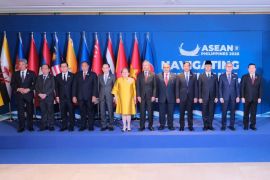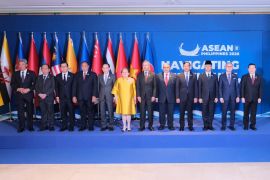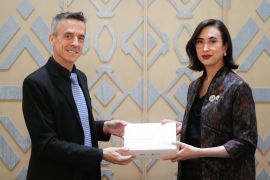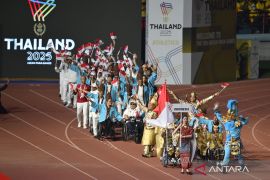The World Summit of Information Society (WSIS) has just awarded the top WSIS prize[1] under the category of “International and Regional Cooperation” to ASEAN in recognition of its initiative on the ASEAN Data Management Framework (DMF) and ASEAN Model Contractual Clauses (MCCs) for Cross-Border Data Flows.
This is an accolade for ASEAN’s contribution to the United Nations’ Sustainable Development Goals and is one to be celebrated and discussed.
The digital economy will play an increasingly large role in the post-pandemic world, especially in Southeast Asia.
In ASEAN, 60 million new digital consumers have been added since the COVID-19 pandemic started, making the region the third-largest Internet base with nearly 400 million users.
ASEAN’s digital revenue increased from US$117 billion in 2020 to US$174 billion in 2021, and is expected to hit the US$363-billion mark by 2025[1].
As a result, the ASEAN digital economy is projected to grow significantly, estimated to reach US$1 trillion regional GDP (gross domestic product) by 2030.
Given this potential, ASEAN needs to focus more on the digital sector to ride the wave of growth in the region and ensure that it continues to be sustainable, including through the ASEAN Digital Economy Framework Agreement (DEFA), on which we hope to commence negotiations by 2025.
ASEAN needs to be cognizant of the importance of data, which is the core building block of the digital economy.
Data-driven services have emerged as the new drivers of economic growth. For instance, it is predicted that data-driven applications of artificial intelligence will generate US$13 trillion in new global economic activity[2].
Yet, unleashing the value of data is far from simple. Data is only valuable when transformed into insights, applications, and services—a process that is traditionally only contained within individual companies.
In a data-driven economy, this process becomes increasingly interconnected, based on the use of advanced technologies to access and process high-quality data that often resides in more than one organization or country.
As businesses increasingly digitalize their processes, data collection, processing, and storage will become commonplace.
Yet, not all companies may be equipped with the necessary capabilities to process and manage data, especially when such exchanges occur across borders.
For ASEAN, maximizing the value of data would also mean ensuring that small and medium enterprises (SMEs) are able to build data capabilities as they account for 95–99 percent of all business establishments and are responsible for more than half the total employment in all ASEAN countries.
A recent study has shown that although 75 percent of MSMEs (micro, small, and medium enterprises) in ASEAN see the opportunities from participating in the digital economy, only 16 percent use digital technologies to their full potential[3].
Furthermore, safeguarding data and facilitating its flow are vital components of the data-driven economy.
They remain a major challenge in ASEAN due to different regulatory regimes on personal data protection and cross-border data sharing practices. This growing fragmentation has often undermined the development of an ASEAN data-driven economy.
Given these challenges, a unified approach to digital data governance is important, with greater emphasis and recognition of the porous nature of and interdependence among ASEAN countries in the data-driven economy.
This is why the ASEAN DMF and MCCs, developed by the ASEAN Working Group on Digital Data Governance, are important.
The ASEAN DMF will help businesses, particularly SMEs, to put in place a governance structure to manage data under their care.
Furthermore, the adoption of MCCs will also help companies incorporate terms and conditions into their business contracts to legitimately transfer personal data across borders.
These initiatives can serve as building blocks to propel the next bound in the region’s digital growth and are the foundation of ASEAN’s upcoming DEFA.
They can provide a stronger mechanism for the free flow of data across borders and ensure greater personal data protection which can, in turn, facilitate a conducive environment for businesses to develop new products and services from data-driven innovations.
Moving forward, to seize the opportunities brought about by data-driven economies, ASEAN needs to continue working on building organizational capabilities and skilled manpower, harnessing the power of new technologies, and harmonizing regulations with a view to developing a common legal framework across the region.
This will include increasing the adoption of the DMF and MCCs so as to ensure that the region deepens its cross-border digital economy integration.
With a unified approach to unlock data opportunities, ASEAN can strengthen its cooperation to thrive together in the digital era, putting it in a good position to work with its dialogue partners.
*) Satvinder Singh is the deputy secretary-general of ASEAN for ASEAN economic community
*) The views and opinions expressed on this page are those of the author and do not necessarily reflect the official policy or position of the ANTARA News Agency
[1] https://www.itu.int/net4/wsis/stocktaking/Prizes/2022/Champions?jts=VIRKCK&idx=12&page=18#start
[2] https://www.mckinsey.com/featured-insights/artificial-intelligence/notes-from-the-ai-frontier-modeling-the-impact-of-ai-on-the-world-economy#part1
[3] https://www.bain.com/insights/advancing-towards-asean-digital-integration/
Related news: Jokowi conveys Indonesia's digital economy potential to US CEOs
Related news: Good potential for ASEAN-Korea partnership in green economy: Jokowi
Copyright © ANTARA 2022











